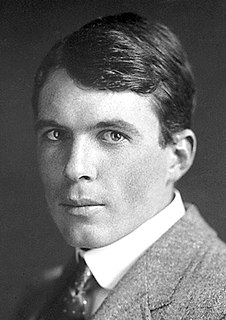A Quote by Michael Specter
Now, as the world's scientists focus with increasing intensity on transforming the genetic codes of every living creature into information that can be used to treat and ultimately prevent disease, Shenzhen is home to a different kind of factory: B.G.I., formerly called Beijing Genomics Institute, the world's largest genetic-research center.
Related Quotes
Plant genetic resources are seldom 'raw materials'; they are the expression of the current wisdom of farmers who have played a highly significant role in the building up of the world's genetic resource base... As is already happening in my country, farmers and national genebanks in developing countries can work together to preserve and expand crop genetic diversity on behalf of all humanity.
'Brave New World' dealt with a kind of proto-genetic engineering of the unborn, through really, as many dystopias do, it dealt with totalitarianism. The 1997 film 'Gattaca' updated 'Brave New World,' bringing us to a future where genetic testing determined your job, your wealth, your status in life.
I feel very strongly indeed that a Cambridge education for our scientists should include some contact with the humanistic side. The gift of expression is important to them as scientists; the best research is wasted when it is extremely difficult to discover what it is all about ... It is even more important when scientists are called upon to play their part in the world of affairs, as is happening to an increasing extent.
I shall borrow two words used for a slightly different purpose by the great demographer Alfred Lotka to distinguish between the two systems of heredity enjoyed by man: endosomatic or internal heredity for the ordinary or genetical heredity we have in common with animals; and exosomatic or external heredity for the non-genetic heredity that is peculiarly our own - the heredity that is mediated through tradition, by which I mean the transfer of information through non-genetic channels from one generation to the next.
A cardinal principle that we must not stray from - no exceptions - is that your genetic information is your business in terms of who sees it. Nobody should be gaining access to that information without your explicit permission, and nobody should be requiring you to take a genetic test unless you decide that that's what you want to do.
I think nobody would claim that random genetic drift is capable of producing adaptation, that is to say the illusion of design. Random genetic drift can't produce wings that are good at flying, or eyes that are good at seeing, or legs that are good at running. But random genetic drift probably is very important in driving evolution at the molecular genetic level.
Superficially it's a problem if homosexuality is genetic - if the difference between people's sexual preferences is genetic - because at least a pure homosexual would be unlikely to reproduce and therefore pass on the genes. So the first question you ask is, is it actually genetic, and the answer is probably to some extent yes.
Is he a dread genetic determinist, or a dread environmental determinist? He is neither, of course, for both these species of bogeyman are as mythical as werewolves. By increasing the information we have about the various causes of the constraints that limit our current opportunities, he has increased our powers to avoid what we want to avoid, prevent what we want to prevent. Knowledge of the roles of our genes, and the genes of the other species around us, is not the enemy of human freedom, but one of its best friends.
































